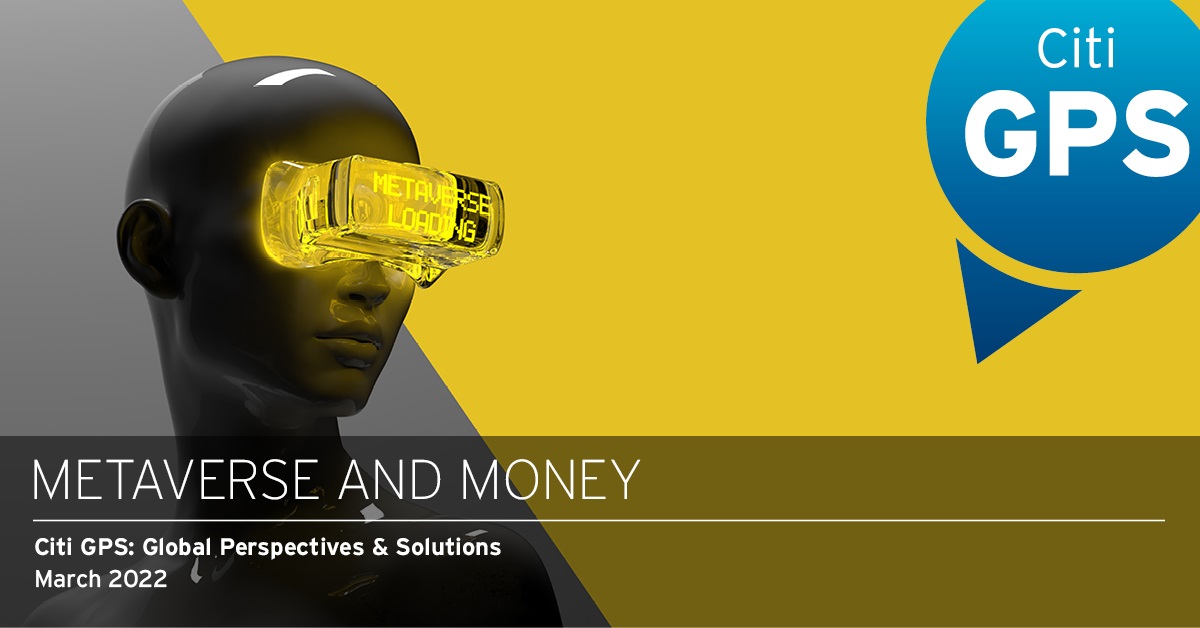Citi released a new Global Perspectives & Solutions (Citi GPS) report titled Metaverse and Money: Decrypting the Future.
“We estimate, in the report, the target addressable market (TAM) for the Metaverse economy to be in the range of $10 trillion plus,” says Ronit Ghose, Global Head of Banking, FinTech & Digital Assets, Citi Global Insights, and co-author of the report. “Expert contributors to the report indicate a range of users of up to 5 billion, depending on whether we take a broad definition (mobile phone user base) or just one billion based on a narrower definition (VR/AR device user base) — we adopt the former”.
The Metaverse may be the next generation of the internet. It would combine the physical and digital world in an immersive manner. Gaming, commerce, art, media, advertising, smart manufacturing, health care, virtual communities, social collaboration, including for enterprise and education, are among some of the likely use cases in addition to everything we use the internet for today.
In the foreseeable future, an immersive internet experience for most users will likely be accessed via their mobile phones and only a subset of the Metaverse participants will use VR devices, despite expected improvement in VR/AR usability.
However, to build an envisioned Metaverse experience, latency needs to improve and faster connectivity speeds are needed. With only 25% of the global population expected to have access to 5G by 2025, network bandwidth needs to be increased and delivered. The lags, packet drops, and network unreliability witnessed in today’s world would make the current state of the infrastructure unsuitable for an immersive Metaverse experience.
The Metaverse of the future would encompass more digitally-native tokens but traditional forms of money would also be embedded. Money in the Metaverse could exist in different forms, i.e., in-game tokens stablecoins, central bank digital currencies (CBDCs), and cryptocurrencies. In addition, digital assets and NFTs, in the Metaverse will enable sovereign ownership for the users/owners and are tradeable, composable, immutable, and mostly interoperable.
If most users access the Metaverse via a mobile phone, the operating system (OS) will be the same. Consumer hardware manufacturers will be portals to the Metaverse and potential gatekeepers. Similar to today, there will likely be a split between a U.S./international and a China/ firewall-based Metaverse in addition to a spectrum based on technology and business model too, i.e., Metaverse centralization versus decentralization.
Importantly, from a legal and regulatory perspective, there is a lot to work out. If the Metaverse(s) is the new iteration of the internet, it will attract great scrutiny from global regulators and policymakers. All the challenges of the Web2 internet could magnified in the Metaverse, such as content moderation, free speech, and privacy. In addition, a blockchain-based Metaverse will brush up against still evolving laws around cryptocurrencies and decentralized finance (DeFi) in many jurisdictions around the world.





